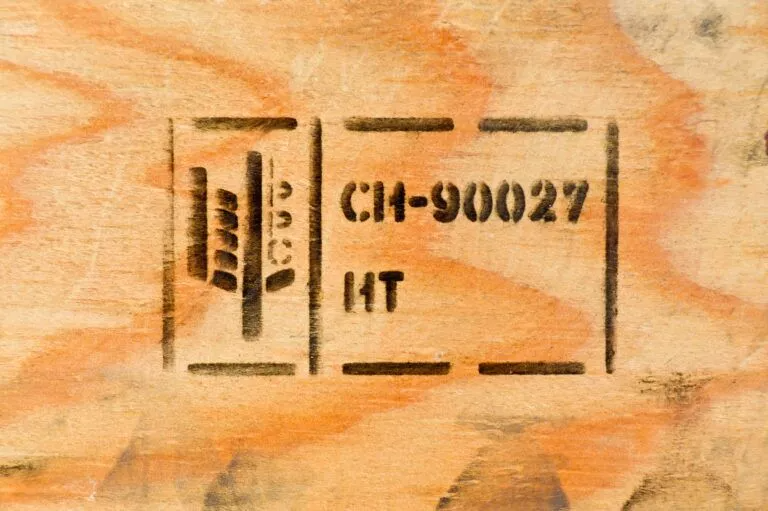US Customs Bonds: What Are They And Why Do I Need One?
October 28, 2022 Customs

If you’re importing over $2,500 worth of goods into the United States, you’ll need a U.S. Customs Bond. You won’t be able to bring goods into the U.S. from any country without one, so it’s important you understand the process.
Below, we’ll look at customs bonds in detail, including what they are and the process to get one.
What is a U.S. Customs Bond?
Also known as surety bonds, a customs bond is an insurance policy for the benefit of the U.S. Government. When you’re importing goods into America, the U.S. Government wants to make sure they’ll be paid their duties and taxes on those imported goods. By issuing you this policy, or “bond”, the Government ensures it will receive that income, even if your company goes broke.
How it essentially works is that a bond company will guarantee payment to U.S. Customs and Border Protection, who will then release goods to the importer (i.e. you).
There are many different types of customs bonds. The two most common types used by importers and exporters are single-entry customs bonds, and continuous customs bonds (also known as Activity 1 Bonds, which we’ll explain below.
Single-Entry Customs Bonds
These bonds are only valid for a single import into America. Unsurprisingly, they’re most popular with those businesses that only occasionally import goods into the United States. They may be the most cost-effective option if you only import goods worth over $2,500 to the U.S. once or twice a year.
Single-entry customs bonds are often charged at either a fixed dollar amount or, alternatively, as a percentage of the goods you’re importing. A new single-entry bond is required for each individual shipment you import and is only valid into one port of arrival.
It’s therefore important that you take the time to consider which approach is best for your business. Purchasing a continuous bond may be more appropriate for you.
Continuous Customs Bonds
Also known as annual bonds, a continuous bond is best for those businesses that import goods to the U.S. on a consistent basis.
It’s much more cost-effective than purchasing a single-entry bond every time you choose to import goods into the country, as this bond will cover shipments over a 12-month period. You also won’t have to worry about buying a separate bond to fulfill another requirement of importing goods into America, known as Importer Security Filing (ISF) (also known as 10 + 2). If you purchase a single-entry bond, ISF requires you to submit a range of information at least 24 hours before your goods are loaded for shipment into the United States.
You can buy a continuous customs bond at a fixed price just once. It will be valid for 356 days from the date of purchase. You’ll then have to buy another one after that period ends in order to continue importing.
The bond amount you will need is the total annual value of duties, taxes and fees multiplied by 10%. This value is then rounded up to the nearest $10,000 to give you a total bond figure. The table below demonstrates the bond size you will need.
The bond amount you will need is not however the premium you pay for that bond. For example, a bond of $50,000 would typically cost $500 USD on an annual basis. To get a quote on a continuous or single entry bond REQUEST A QUOTE with our team today.
Why do I need a Customs Bond?
The only thing certain in the shipping industry is taxes. The U.S. Government wants the security that they’ll get their fair share of the import and so require importers by law to have a customs bond. Bonds cover your imports by sea and by air.
Failure to have a customs bond may lead to fines and delays with your cargo. It’s simply the price of doing business.
When do I need a Customs Bond?
You’ll need one if you’re importing commercial goods valued over $2,500 USD.
However, you may also need one if a U.S. government agency requires it. If you’re importing food into America, for example, the U.S. Food and Drug Administration (FDA) may require you to have a customs bond.
How do I obtain a Customs Bond?
The easiest way to do this is to instruct a freight forwarder to obtain one on your behalf. To do this, you’ll need a sign a Power of Attorney (POA), allowing your broker to file your bond with U.S. Customs and Border Protection. You can read more about the POA, and download a copy of our POA, here.
You can alternatively buy customs bonds yourself from a U.S. licenced customs broker. They’ll deal with the bond provider directly, also known as a surety company.
U.S. Customs and Border Protection (CBP) provides further information on their website for new importers and exporters.
Engage an expert freight forwarder to obtain your customs bond
Here at International Cargo Express, we work with the very best partners in the U.S. and can apply for a bond on your behalf.
We can provide tailored advice about which type of customs bond is the most appropriate and cost-effective for your business, and the easiest way for you to obtain one. We’ll ensure that your bond is correct and that your shipments clear U.S. customs without delays or unexpected incidents.
Please don’t hesitate to contact our friendly shipping specialists today.
Request A Quoteor call us on 1300 227 461
Recommended For You

We Consult. We Plan. We Deliver.
- CONSULT – We discuss your specific needs.
- PLAN – We develop a bespoke tailored plan that is cost-effective & efficient.
- DELIVER – We manage your shipment and keep you updated from beginning to end.


